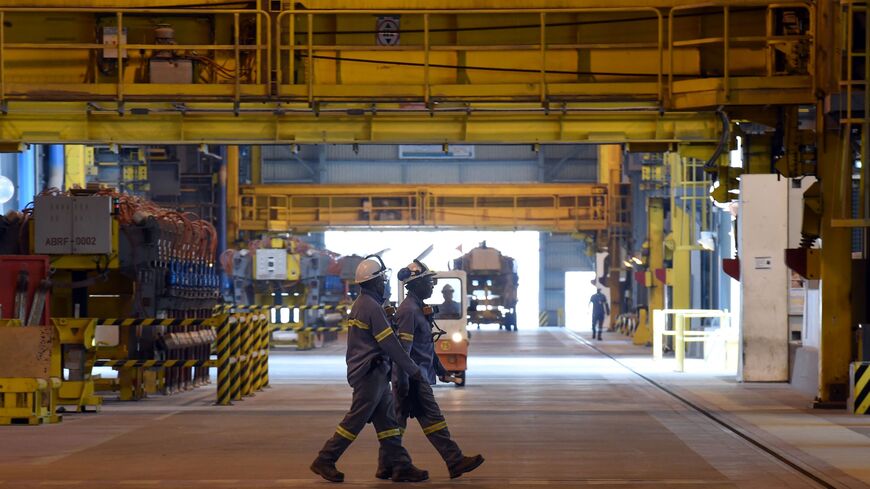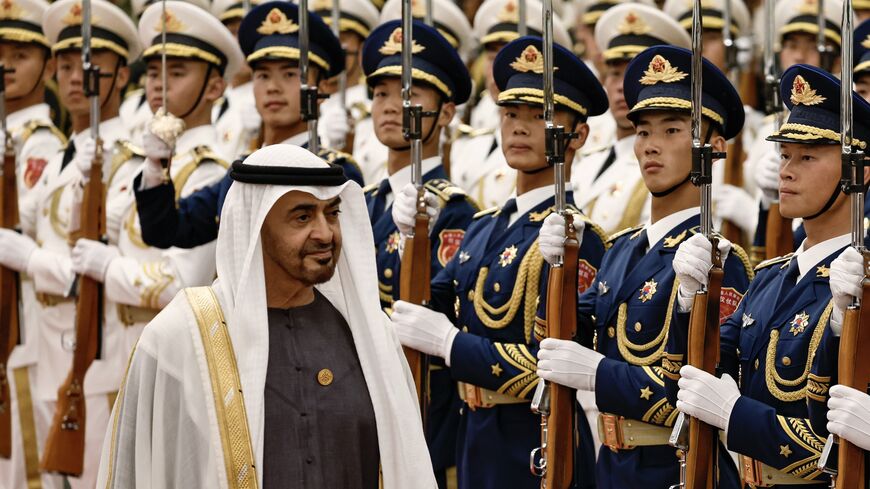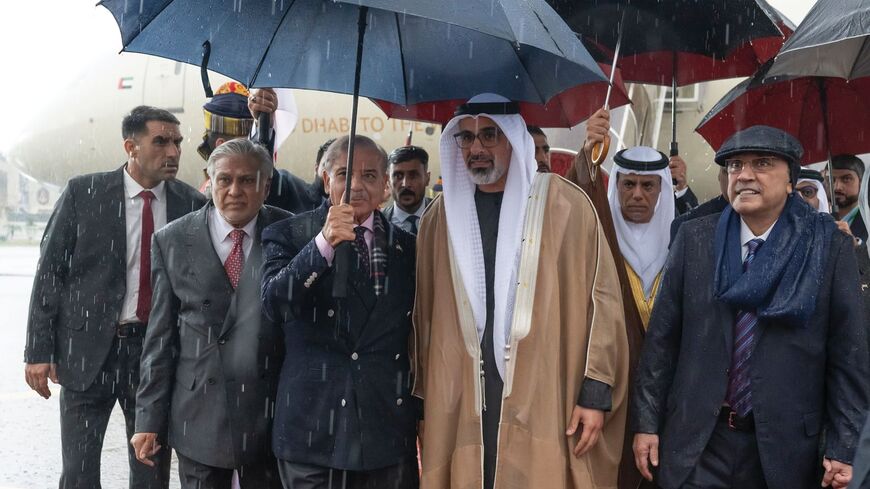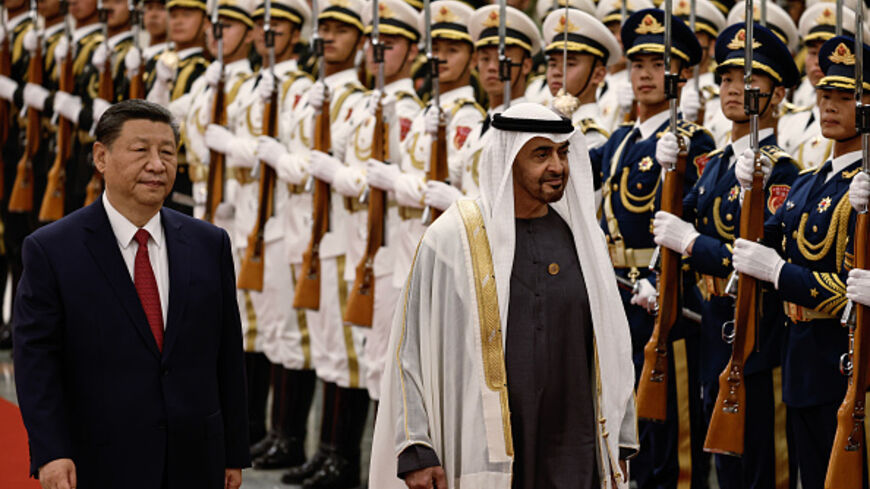UAE president to finesse ties in upcoming Beijing visit amid US-China rivalry
The Emirati president's first trip to China in two years comes as ties to the People’s Republic are strengthening across a variety of sectors.
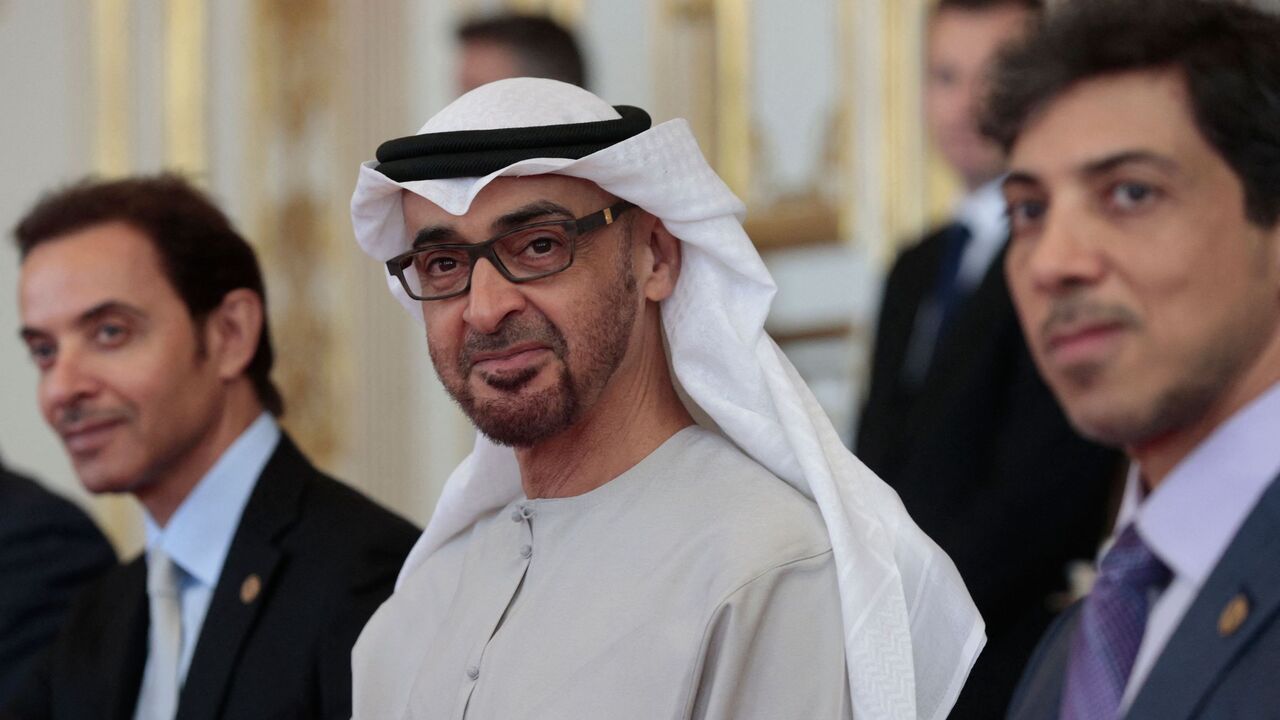
The United Arab Emirates' president, Sheikh Mohammed bin Zayed Al Nahyan, will visit China next week, state media announced on Friday, in a move that could further boost bilateral ties amid scrutiny from the United States.
The UAE leader will arrive in China on May 30 following an invitation from his Chinese counterpart, Xi Jinping. The two will discuss ways to improve bilateral ties, particularly in the economic, development and cultural spheres. He will also attend celebrations marking the 40th anniversary of diplomatic relations between the UAE and China and participate in the Ministerial Conference of the China-Arab States Cooperation Forum, the official Emirates News Agency reported.
The forum is a dialogue initiative between China and the Arab League.
The president last visited China in 2022 for the Winter Olympics in Beijing.
Chinese Foreign Ministry spokesperson Wang Wenbin did not address the trip during his Friday press conference.
Why it matters: Relations between the UAE and China are strengthening in a variety of sectors. In February, the Chinese electric vehicle firms Nio and Xpeng announced deals with Emirati companies, building on last year’s EV-related deals between entities in both countries.
Other recent developments include the UAE and Chinese central banks renewing their $4.9 billion currency swap agreement in November, a cooperation deal between the Dubai and Shanghai stock exchanges the same month and the UAE sovereign fund Mubadala opening a Beijing office in September.
UAE-China trade ties are significant, in part due to Chinese energy demands. The Emirates exported $32.5 billion to China in 2022, mainly crude petroleum and petroleum gas. China exported $57.7 billion to the UAE that year, mostly broadcasting equipment, computers and vehicles, according to the Observatory of Economic Complexity.
China was the UAE’s largest trading partner in 2022, while the UAE was China’s biggest partner in the Arab world, according to the Emirati Ministry of Economy.
The UAE’s relations with China are under scrutiny by the United States. Most recently, the Emirati artificial intelligence company G42 has received warnings from Washington to reduce its presence in the People’s Republic, Bloomberg reported last month.
Washington is concerned about China gaining access to American technology through Gulf entities, Assistant Secretary of State for Near Eastern Affairs Barbara Leaf told Al-Monitor last year.
China’s ties to the Gulf extend beyond the UAE, and Beijing’s ties to Saudi Arabia and Bahrain are likewise strengthening. The US-China rivalry is one reason the Gulf states are turning to China, according to some observers.
“Saudi Arabia and the UAE have emerged as key middle powers driven by their ambition to play a role in a changing global order and the growing geopolitical competition between China and the United States. In the meantime, China’s changing perspective on the Gulf is part of its growing assertiveness and ambition on the international scene,” read a Monday report from the European Council on Foreign Relations.
Know more: The UAE has been busy on the diplomatic front this week. On Thursday, Pakistani Prime Minister Shehbaz Sharif visited Abu Dhabi to meet with the president. The UAE announced it would invest $10 billion in the Pakistani economy following the visit.
On Friday, President of Iraq’s Kurdistan Region Nechirvan Barzani arrived in Abu Dhabi for talks with the Emirati leader.
Both Barzani and Sharif were both in Iran on Wednesday for President Ebrahim Raisi’s funeral.

